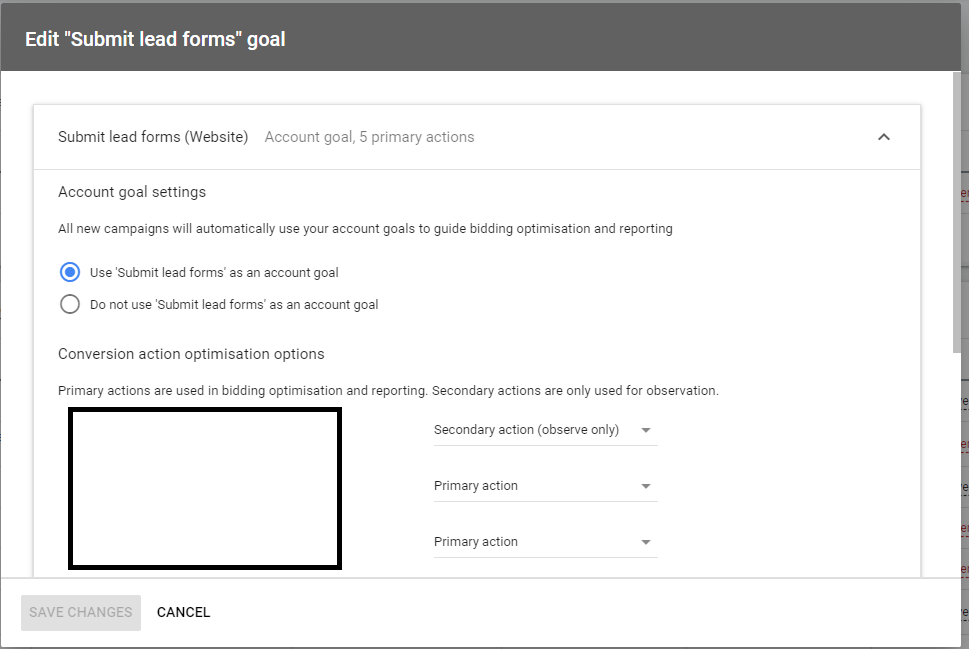Budgets can be tough to set, especially in new campaigns. Setting the budget too high or low can lead to wasted spend, machine learning issues, and other account performance hiccups.
That’s why we’re going to spend this Ask the PPC column addressing the relationship between budgets, conversions, and cost per acquisition.
Jack from Colchester asks,
“I often see a daily budget of less than the total cost per conversion. Would having a higher daily budget than the cost per conversion improve conversions more by having enough budget per day?
For example, if our cost per conversion for a coffee machine is £120, does the daily budget matter?
Say we had a daily budget of £200 for 5 working days and the CPA is £120, versus a daily budget of £333 for 3 days. Technically, on the fifth day I would be getting 1 per day vs. on the third day I would get 2 per day. I could be over thinking this – I hope you can help.”
Basic Rules Of Engagement
It’s important to remember that daily, monthly, and lifetime budgets behave differently.
If you set a daily budget, the ad network will attempt to average your daily spend across 30.4 days. This can mean the ad network will spend up to 200% of your daily budget on a given day.
Monthly and lifetime budgets allow for more fluctuation on daily spend, and for the most part will honor the stated number.
They’re great for those who need to spend a certain amount in the given period and can be a handy way to get around the ramp up period for new campaigns.
Your cost per acquisition (CPA) is determined by the conversions you designate as “in-conversions”.
It’s possible for this number to be spiked by including too many conversion actions, or not enough.
 Screenshot by author, November 2021.
Screenshot by author, November 2021.Secondary conversion actions won’t be factored into the reported CPA or smart bidding.
Budget’s Impact On Conversions/CPA
Your actual costs are determined by impressions and clicks. CPA and conversion rate tell you:
- Is your sales team/site doing at closing the deal?
- Are you configured for quality or volume traffic?
- Can your budget support all the objectives?
In the question’s example, there are a few unspoken mechanics:
- The advertiser achieved 8.34 conversions for 1000 GBP.
- The individual conversions might have had cheaper costs; however, the overall reported CPA factors in total cost divided by total conversions.
- We don’t know how many clicks were needed to get the 8 conversions.
Budgets should be able to support at least 10 clicks in their day as a 10% conversion rate is really good for search. The easiest way to see if you have enough budget is to look at impression share lost to budget.
If the budget is too low to support enough clicks to the site to trigger the conversion rate, the CPA will go up.
Increasing your budget doesn’t always lead to a decrease in CPA. If the quality of the traffic is poor, it doesn’t matter how much fuel the campaign has.
Beginning with a slightly higher budget in the first 60 days of a campaign can help you get statistical significance on the traffic quality.
This way, any adjustments to budget are based on scaling for conversion volume as opposed to troubleshooting intent.
When To Change The Budget Vs. When To Change The Channel
It’s important to know when a channel is a good or bad fit for a budget.
Bringing a lower budget to paid search might result in higher CPAs due to the higher costs per click (CPC).
Bringing a large budget to an awareness campaign (social targeting landing page visits, video, etc.) might also have higher CPAs due to the lack of transactional focus.
Signs the issue is not enough budget:
- Top of page impression share is consistently below 40%.
- Average CPC exceeds 10% of the daily budget.
- The campaign struggles to spend the budget consistently (i.e. spikes occasionally throughout the 30.4 day period).
Signs the issue is the channel:
- Lead quality is poor or random.
- Increasing the budget did nothing to help the CPA situation.
Takeaway
Your budget does not guarantee a set number of conversions or CPA. It fuels your ad campaigns to deliver you impressions and clicks.
Changing budgets on a campaign should only be done if the campaign can’t support the objectives it’s been given.
I strongly recommend using ad network budget reports, which will help you forecast what your budget is capable of delivering.
Have a question about PPC? Submit via this form or tweet me @navahf with the #AskPPC hashtag. See you next month!
More resources:
- The Most Common Way PPC Ad Budget Is Wasted
- The 6 Most Important PPC KPIs You Should Be Tracking
- Is Your PPC Agency Wasting Your Budget? [E-book]
Featured image: Shutterstock/Sammby





